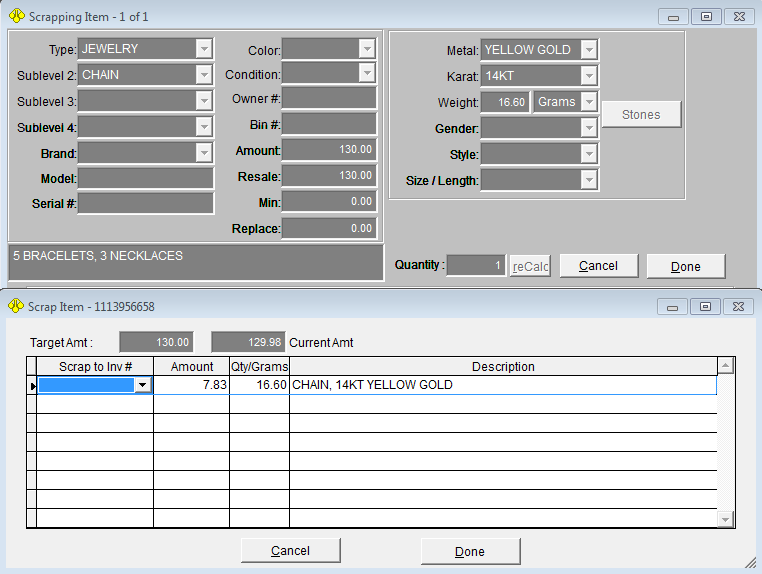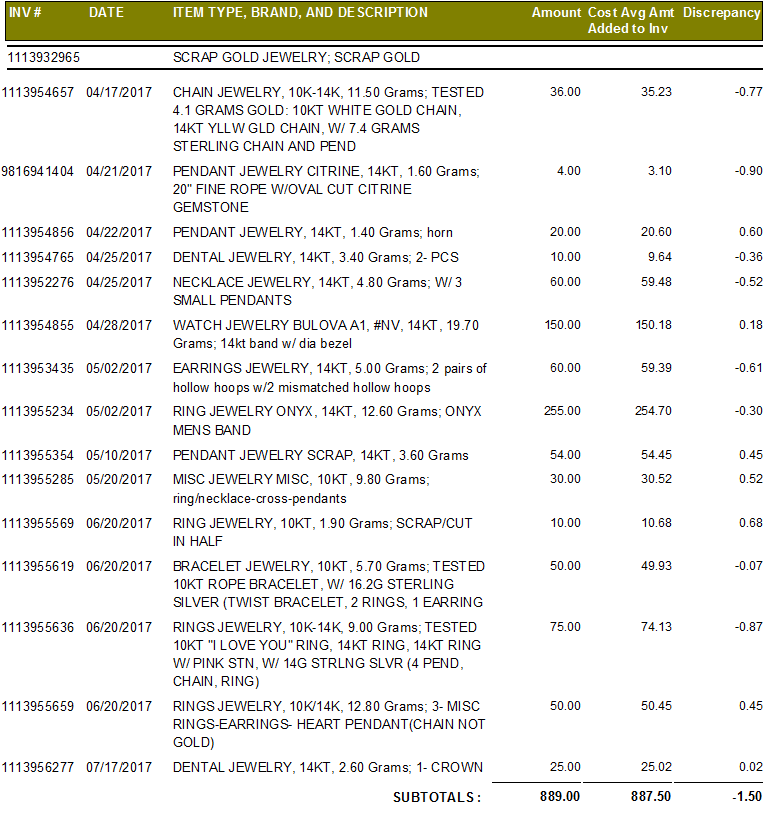 There are many instances where PawnMaster must round to the nearest whole penny.
There are many instances where PawnMaster must round to the nearest whole penny.
Pawnbrokers don’t pay customers $129.98 for 16.6 grams of gold. They pay the customer $130.
But PawnMaster needs to determine what the amount paid per gram is, in order to add that weight of metal to a scrap bucket and display the average cost of all metal in the bucket.
So in the example below the amount paid out to the customer, $130 is divided by the weight of gold, 16.60. The result is 7.831325301204819. Because PawnMaster only records two decimal places, 7.831325301204819 is rounded to 7.83.

Now if you multiply 7.83 by the weight of 16.60 the result is 129.978. Again PawnMaster rounds the result to 129.98.
So in this example the shop paid a customer $130.00 and added $129.98 worth of gold to the 14KT Scrap bucket. Please keep in mind that in some cases the cost will be rounded up, sometimes down and sometimes no rounding will be needed. The law of averages states that over time the rounding tends to cancel each other out.
The effect of rounding during scrapping can be seen in the following reports;
Accounting #1 Analysis Report, part 3, bottom
Accounting report #2 Management DashBoard right “Scrap/Combine Adj”
Inventory report # 11 Scrap/Combine Rounding Discrepancy
The following report shows the rounding over 15 transactions. There is a total of $7.30 in rounding, but because some items rounded up and some down, the final rounding result is $-1.50

One of the reasons PawnMaster includes this information is because under certain rare circumstances the shop may incur sufficient gains or losses from rounding that they would have to report it as income or a loss. Data Age doesn’t provide tax advice and the threshold for reporting income varies by business type.
